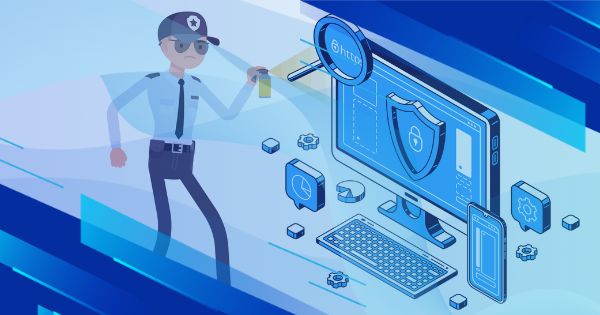
Free Consultation
- How long does it take to become compliant?
- How much does it cost to become compliant?
- What are the benefits of compliance?

According to the HIPAA Security Rule (45 CFR 164.308), all Covered Entities and Business Associates must appoint a HIPAA Security Officer. This individual is tasked with creating and enforcing policies and procedures to protect electronic Protected Health Information (ePHI). While it is commonly assumed that the role of a HIPAA Security Officer should be filled by an IT Manager, this is not always the case. Although IT does play a part in maintaining the security of ePHI, it only accounts for about 30% of the officer's responsibilities. The remaining duties include training employees, conducting audits, managing incidents, ensuring Business Associate compliance, overseeing facility security, and preparing Disaster Recovery Plans.
The HIPAA Security Rule requires the designated HIPAA Security Officer to establish and enforce policies and procedures aimed at preventing, detecting, containing, and rectifying breaches of electronic protected health information (ePHI). Before developing these policies and procedures, the HIPAA Security Officer must conduct and document risk assessments that encompass all aspects of the Security Rule's Technical, Physical, and Administrative Safeguards. Once the risks to ePHI integrity are identified, the HIPAA Security Officer must implement measures to reduce these vulnerabilities to a reasonable and appropriate level, as mandated by 45 CFR 164.306(a). Additionally, employees must receive training on new work practices and be informed of the consequences for non-compliance with the new policies and procedures. To effectively enforce the sanctions policy, a system for reviewing information system activity must also be put in place.
According to HIPAA regulations, organizations are required to appoint both positions, although depending on the size and nature of the organization, they can be combined into one role. The responsibilities of a HIPAA Privacy Officer mirror those of a Security Officer in some ways, such as conducting risk assessments, staff training, and managing Business Associate Agreements. However, a Privacy Officer also holds the responsibility of developing, implementing, and enforcing policies and procedures that protect PHI in any format it is stored. Ultimately, the role of a HIPAA Privacy Officer is crucial in ensuring compliance and safeguarding patient information.
Due to the diverse range of responsibilities associated with being a HIPAA Security Officer, it is not always ideal to assign this role to an IT Manager. Instead, the most suitable candidate for this position is typically someone in a position of authority who possesses excellent organizational skills and a comprehensive understanding of HIPAA. While it is crucial for a HIPAA Security Officer to have knowledge of the organization's computer systems, it is even more vital for them to collaborate with the designated Privacy Officer or, in larger organizations, the HIPAA Compliance Team. This partnership allows for the pooling of resources in tasks such as risk assessments, employee training, and expediting HIPAA compliance, as there are overlapping areas in the Security and Privacy Rules. Furthermore, such collaboration can ensure better oversight of Business Associate compliance.
Failure to appoint a HIPAA Security Officer is a breach of HIPAA regulations, leading to potential penalties from the Office for Civil Rights at HHS. If a Covered Entity or Business Associate fails to appoint a HIPAA Security Officer, it increases the risk of not applying Security Rule standards. Consequently, this raises the likelihood of unnecessary data breaches, damage to reputation, and additional penalties enforced by the Office for Civil Rights at HHS.
According to 45 CFR § 164.530, Covered Entities must assign a Privacy Officer, but this requirement does not extend to Business Associates under the Privacy Rule. While it is advisable for Business Associates to assign a senior employee as Privacy Officer, some organizations may not have one. In such cases, the responsibility for HIPAA compliance lies solely with the Security Officer.
The individual in charge of HIPAA security must ensure the enforcement of the security and awareness training program mandated by 45 CFR § 164.308. The content of this program should be based on a thorough risk analysis and involve all members of the staff. Additionally, if any significant changes are made to policies and procedures relating to protected health information (PHI) that affect the protocols for safeguarding electronic PHI, the security officer must also participate in providing training on the Privacy Rule.
In cases where smaller organizations are constrained by limited resources, they often have no choice but to assign both roles to the same individual. Surprisingly, HIPAA does not impose any restrictions in this regard. Nonetheless, given the intricate nature of HIPAA, it might be beneficial for these organizations to consider outsourcing specific compliance tasks or utilizing compliance software. This precautionary measure can help prevent inadvertent breaches of HIPAA regulations and avoidable data breaches."
Quick & Simple
Whether you need to meet and maintain your compliance requirements, help your clients meet them, or verify supplier compliance we have the expertise and solution for you